
© Umberto Nicoletti
Having recently returned from a tour to Asia, the BBC Symphony Orchestra resumes its 2013-14 season at the Barbican, a season which has more than a breath of French air about it – featuring, as it does, six French conductors, ten French soloists and music by 22 different French composers.
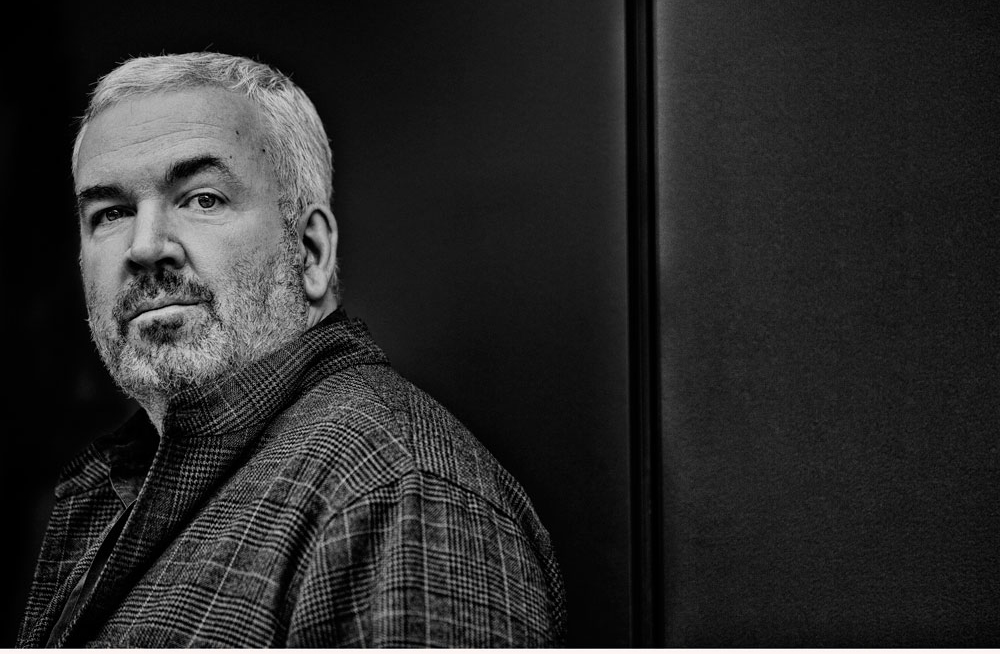
© Marco Borggreve for Naive
The first programme, on October 26th, was an all-French affair, led by Mark Minkowski, founder of Les Musiciens du Louvre, also Artistic Director-designate of Salzburg Mozartwoche, and Music Director of Sinfonia Varsovia. Marking 50 years since the death of Francis Poulenc, the programme included two of his works – his Figure humaine, a cantata for 12-voice a capella choir, and his Concerto for Two Pianos, which featured young French pianists David Kadouch and Guillaume Vincent. Interestingly, the Figure humaine was written in Nazi-occupied France, to the poems of Paul Éluard – in hiding because of his support for the Resistance. Not only were the poems sent to Poulenc in secret, but the musical score had to be smuggled out of France for its first performance, which took place in London in March 1945. The two works making up the rest of the programme were Ravel’s Mother Goose Suite and Roussel’s Symphony No 3.
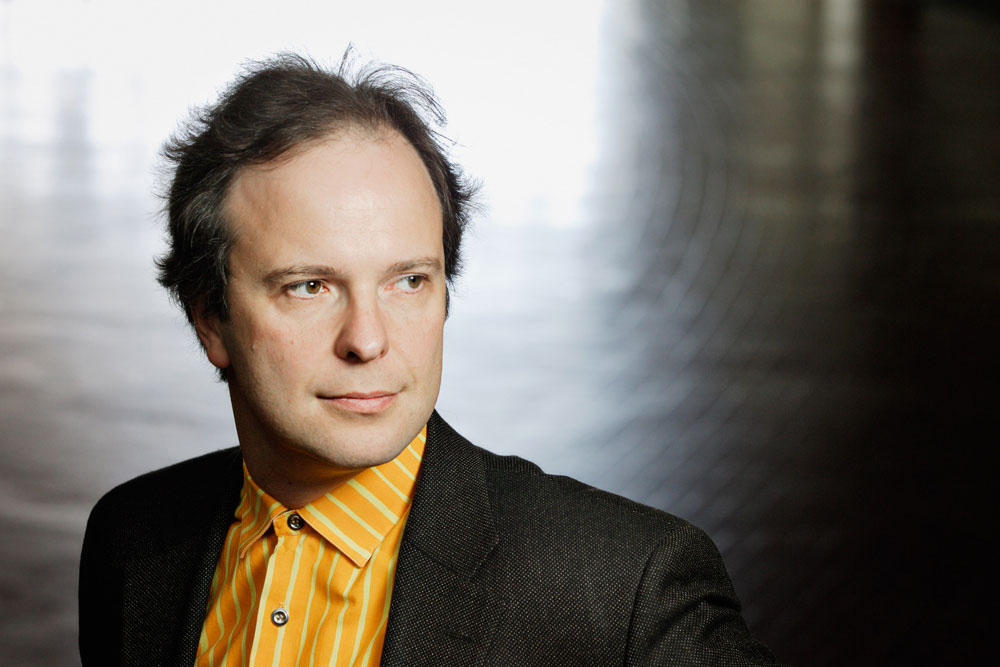
© Heikki Tuuli and Octavia copy
On November 2nd, conductor Sakari Oramo makes his debut as Chief Conductor of the BBC Symphony Orchestra in a programme which features the world premiere of French composer Tristan Murail’s Reflections/Reflets, a BBC co-commission. Murail is one of the principal founders and theoreticians of spectral music, a musical genre originating in France in the 1970s which makes use of sound – including the timbre, pitch, and rhythm of individual sounds – as a model for composition. The programme also includes the Shostakovich Concerto for Piano, Trumpet and String Orchestra – in which pianist Olli Mustonen is joined by trumpeter Sergei Nakariakov – and the Symphony No 1 by Mahler.
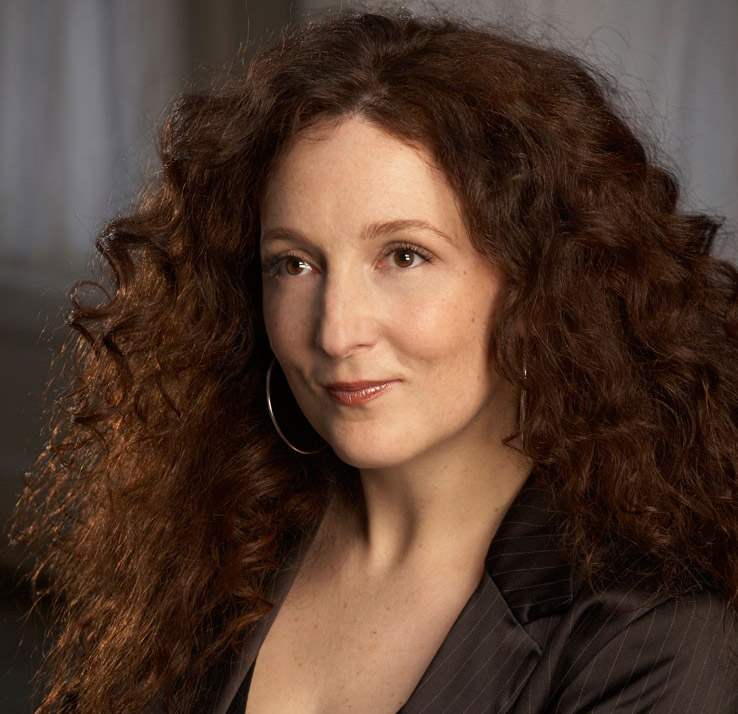
Courtesy BBC
Two works by Ravel are highlights of the concert on December 4th – his song cycle, Shéhérazade – set to three poems by Tristan Klingsor – which features French mezzo-soprano, Nora Gubisch, and his Pavane pour une infante défunte, one of his most popular pieces. Having once said that its title was meaningless, Ravel also commented that it is “an evocation of a pavane that a little princess might, in former, times, have danced at the Spanish court”. This programme, led by Spanish conductor, Josep Pons, opens with Schreker’s overture Die Gezeichneten and includes Busoni’s Berceuse élégiaque and Schoenberg’s Chamber Symphony No 1.
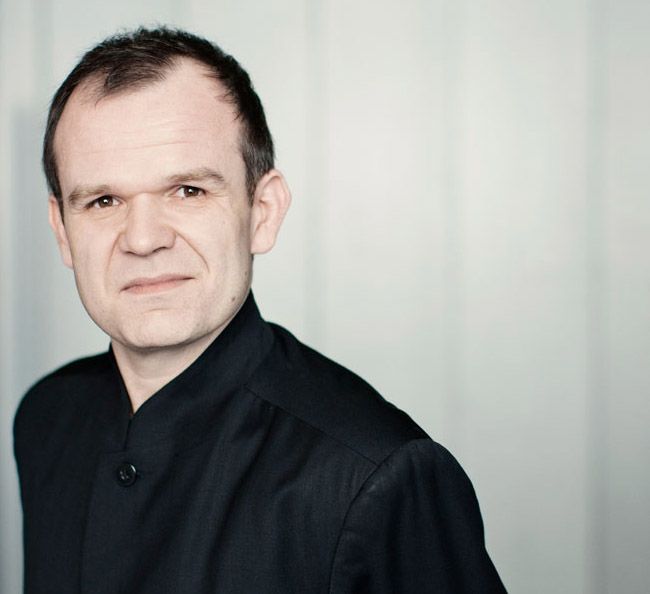
© Marco Borggreve
L’enfance du Christ by Berlioz is the featured work on 15th December. François-Xavier Roth leads the BBC Symphony Orchestra, the BBC Symphony Chorus and the Trinity Laban Chamber Choir in this seasonal oratorio featuring Berlioz’s retelling of the Christmas story. It was inspired, according to the composer, by “the illuminations of the old missals”. The soloists are mezzo-soprano Karen Cargill, Yann Beuron tenor, baritone Marcus Farnsworth, and Christopher Purves bass. Principal Conductor of the SWR Sinfonieorchester Baden-Baden und Freiburg, François-Xavier Roth also holds the position of Associate Guest Conductor of the BBC National Orchestra of Wales, and regularly conducts the London Symphony Orchestra.
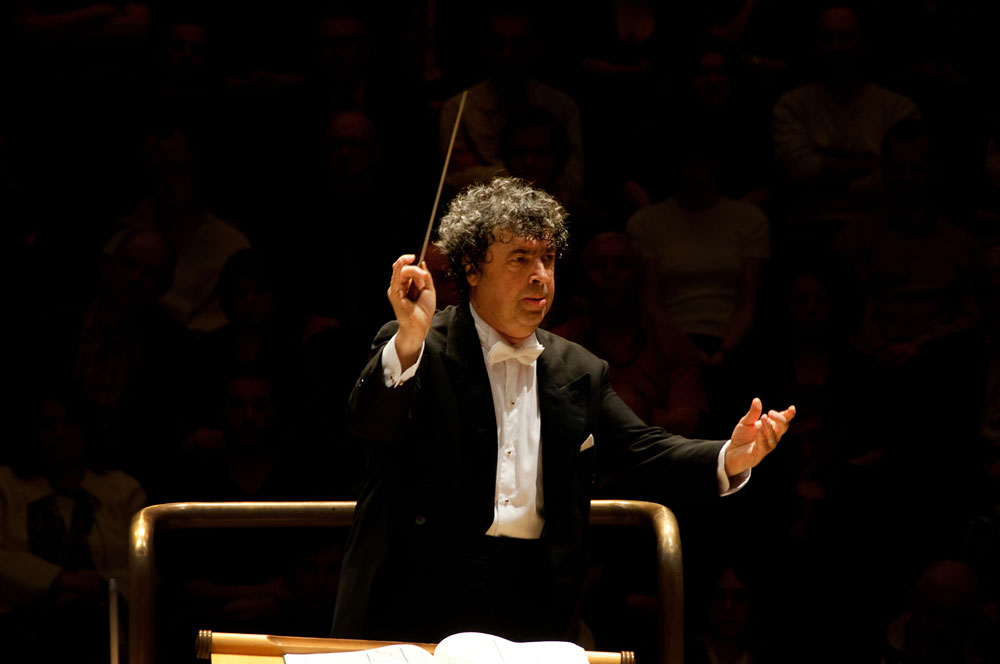
Courtesy San Francisco Symphony
The first French-inspired concert of 2014, on 16th January, features the Labèque sisters, Katia and Marielle. Having appeared with many of the world’s leading conductors and at the most important international festivals, they have a repertoire which also includes jazz, ragtime, flamenco, baroque – on period instruments – and even pop and experimental rock. Directed by Semyon Bychkov – who holds the BBC Symphony Orchestra’s Günter Wand Conducting Chair – the concert features two works, both written during the Second World War, but each totally different from the other. Katia and Marielle Labèque play the Martinů Concerto for Two Pianos, written during a highly productive time for the composer whilst he was in the United States, and the other work is the Shostakovich Symphony No 7 in C major, entitled Leningrad – in which the composer pays tribute to the defiance and courage of the Russian people.
The programme on 22nd January is the first of two in this series which pairs the music of Beethoven – on this occasion his Symphony No 7 – with recent French music. Led by Israeli conductor, Ilan Volkov, the concert opens with Mégalithes, a work by Gérard Grisey, which involves 15 brass players, interestingly, being “scattered around the hall”. This is followed by the UK premiere of Hugues Dufourt’s Piano Concerto, with soloist Nicolas Hodges, and cummings ist der Dichter by Pierre Boulez, a setting of the poetry of E E Cummings for vocal ensemble and chamber orchestra, featuring the BBC Singers.

© Jonathan Grimbert Barré
The second of these concerts takes place on 29th January, in which Lionel Bringuier conducts Beethoven’s Symphony No 4 in a programme which also includes the UK premiere of a work by Gérard Pesson, his Ravel à son âme (Ravel ‘to his soul’) – in which Pesson pays homage to his predecessor. This is followed by Marc-André Dalbavie’s Flute Concerto – with soloist Michael Cox – and Ravel’s enduringly popular Bolero. Lionel Bringuier is regarded as one of the most exciting young conductors to emerge from France in recent years. Currently Music Director of the Zürich Tonhalle Orchestra, he was Resident Conductor of the Los Angeles Philharmonic for the 2012-13 season.

© Gaëtan-Bernard
On February 22nd, French pianist François-Frédéric Guy teams up with Armenian Varduhi Yeristyan for the UK premiere of the Concerto for Two Pianos dedicated to them by Bruno Mantovani – headmaster of the Paris Conservatory, from which illustrious institution, he, as a student, was the recipient of five first prizes. In a concert conducted by Fabien Gabel, Music Director of the Quebec Symphony Orchestra, the programme also features Chausson’s symphonic poem for orchestra, Soire de fête, Debussy’s Trois Nocturnes – an orchestral composition in three movements inspired by a series of Impressionist paintings – and Beethoven’s Symphony No 8.
French-born conductor, Sylvain Cambreling, leads the BBC Symphony Orchestra on 19th March, in a concert which opens with Mozart’s Sinfonia concertante for violin, viola and orchestra, featuring two of Europe’s leading young string players, Veronika Eberle (violin) and Antoine Tamestit (viola). This concerto is followed by Olivier Messiaen’s Éclairs sur l’Au-delà – Illuminations From the Beyond – the composer’s last completed work. Commissioned by the New York Philharmonic Orchestra for its 150th anniversary in 1992, the premiere was conducted by Zubin Mehta a matter of months after Messaien’s death.
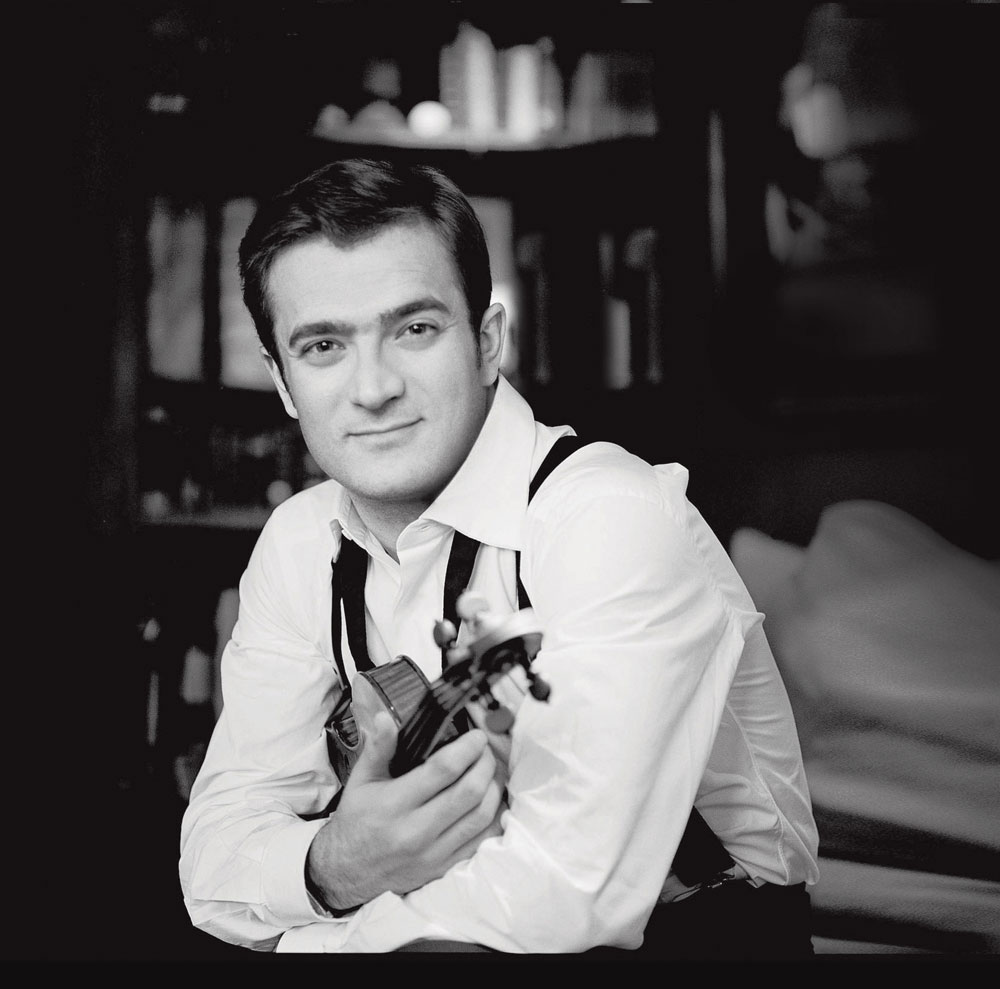
© Mat Hennek
Sakari Oramo takes to the podium again on 3rd May, for a programme which is largely French in content, with the exception of the final work, Elgar’s Enigma Variations. The concert opens with Debussy’s symphonic poem Prelude à l’après-midi d’un faune – inspired by Stéphane Mallarmé’s 1876 poem – and the music on which Nijinsky based his provocative ballet. Gifted French violinist Renaud Capuçon is the soloist in the UK premiere of Pascal Dusapin’s Violin Concerto, Aufgang, a work written by the contemporary French composer for Capuçon. This is followed by Eric Honegger’s tone poem for orchestra, Rugby. Written in 1928, it’s the second in a series of mouvements symphoniques – the first being Pacific 231, depicting a steam locomotive, and one of his best-known works.
Paul Dukas provides the French contribution for a very international concert on 9th May. The programme opens with his symphonic poem, The Sorcerer’s Apprentice. Written in 1896-97 it was inspired by Goethe’s 1797 poem about a magician who leaves his apprentice in charge of his workshop. This concert features another UK premiere (and a BBC commission) – the Violin Concerto by Chinese-American composer, conductor and pianist, Bright Sheng – with Gil Shaham as soloist. The final work is Bartók’s Concerto for Orchestra. Commissioned by Serge Koussevitzky, director of the Boston Symphony, it was premiered by the Symphony in December 1944.
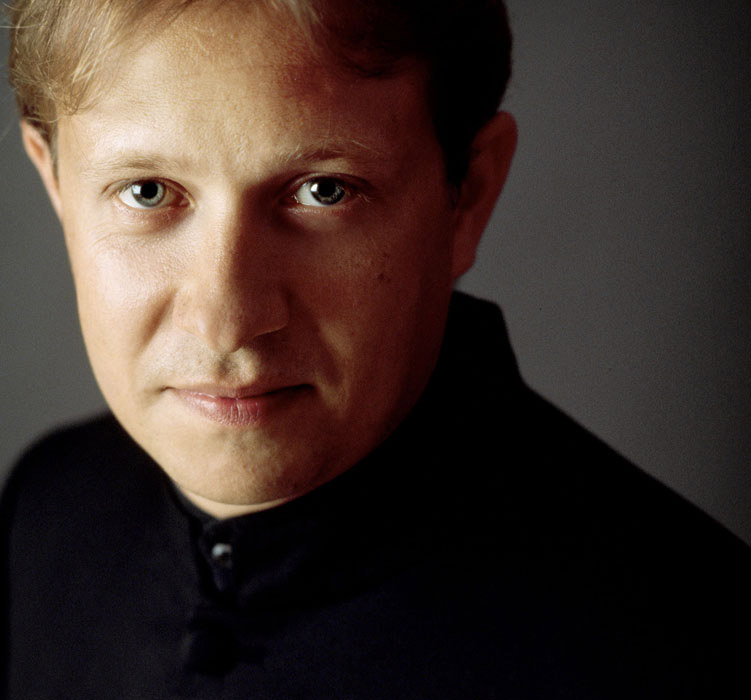
© Sussie Ahlburg
The last concert of the season is also influenced by French music and artists, and takes place on 24th May. Led by French conductor, Ludovic Morlot – Music Director of the Seattle Symphony and Chief Conductor at La Monnaie/De Munt opera house – the programme features Fauré’s Requiem and a concert staging of Poulenc’s light-hearted and rarely-performed opera, Les mamelles de Tirésias. The much-loved Requiem by Gabriel Fauré is his choral-orchestral setting of the Roman Catholic Mass for the Dead, which was premiered in its first version at La Madeleine in Paris, in 1888. Soprano Hélène Guilmette and baritone Jean-Francois Lapointe are joined by the BBC Symphony Chorus for this performance of one of Fauré’s best-known works, which was played at the composer’s own funeral.
For details of the complete BBC Symphony Orchestra 2013-14 season, please follow this link
Mark Minkowski
Sakari Oramo
Tristan Murail
Nora Gubisch
Josep Pons
Francois-Xavier Roth
Katia and Marielle Labèque
Semyon Bychkov
Ilan Volkov
Lionel Bringuier
Fabien Gabel
Bruno Mantovani
Sylvain Cambreling
Renaud Capuçon
Pascal Dusapin
Bright Sheng
Ludovic Morlot
